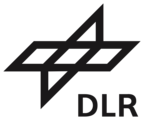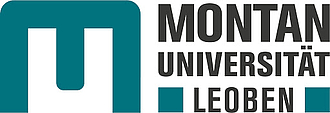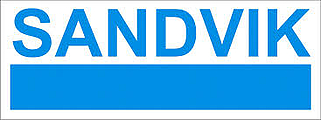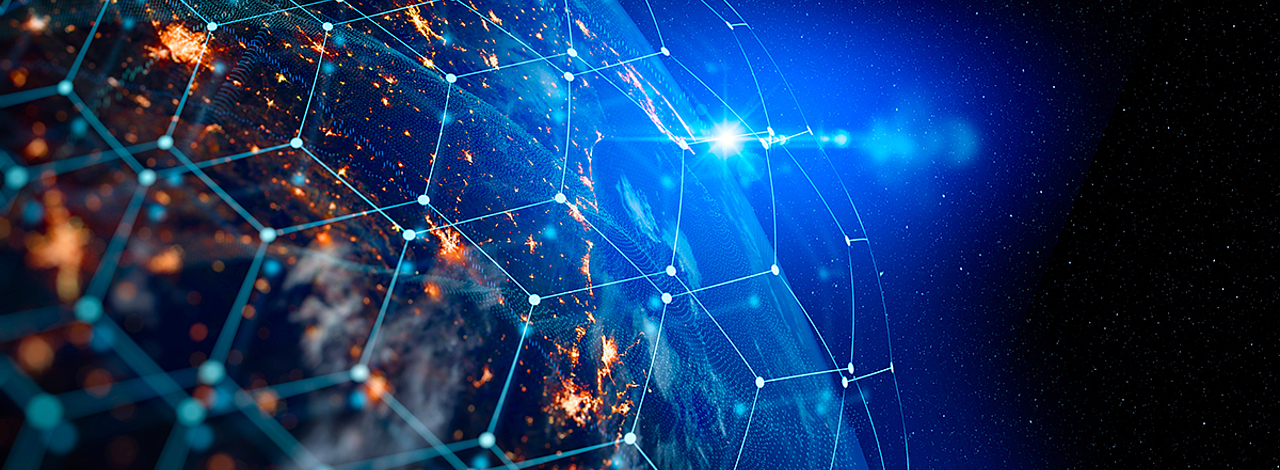Consortium Description
The HoloMine project is a multidisciplinary project, financed by EIT RawMaterials, with 8 partners from a wide range of disciplines.
The partners include research organisations as well as mining companies and SMEs. The 8 partners are Deutsches Zentrum für Luft- und Raumfahrt, DMT GmbH & Co. KG, LTU Business AB, Montanuniversität Leoben, Robotic Eyes GmbH, Technische Hochschule Nürnberg, TU Bergakademie Freiberg and Technische Universität Graz.
EIT RawMaterials - European Institute of Innovation & Technology Berlin, Germany
EIT RawMaterials, initiated by the EIT (European Institute of Innovation and Technology) and funded by the European Commission, is the largest and strongest consortium in the raw materials sector worldwide. Its vision is a European Union where raw materials are a major strength. Its mission is to boost competitiveness, growth and attractiveness of the European raw materials sector via radical innovation and guided entrepreneurship.
EIT RawMaterials unites more than 100 partners – academic and research institutions as well as businesses – from more than 20 EU countries. They collaborate on finding new, innovative solutions to secure the supplies and improve the raw materials sector all along its value chain – from extraction to processing, from recycling to reuse.
EIT RawMaterials aims to significantly enhance innovation in the raw materials sector by sharing of knowledge, information and expertise: Entrepreneurs, Start-ups and SMEs receive funding and support through our partner network and collaboration activities.
EIT RawMaterials will generate a significant impact on European competitiveness and employment by driving and fostering innovation and empowering students, entrepreneurs and education partners driving toward the circular economy. This will result in the introduction of innovative and sustainable products, processes and services, as well as talented people that will deliver increased economic, environmental and social sustainability to European society.
DLR - Deutsches Zentrum für Luft- und Raumfahrt e.V.

DLR is the national aeronautics and space research centre of the Federal Republic of Germany. Its extensive research and development work in aeronautics, space, energy, transport and security is integrated into national and international cooperative ventures.
DLR is involved in HoloMine with its Institute of Optical Sensor Systems. The Institute of Optical Sensor Systems investigates and develops active and passive optical sensor systems for satellites, flying platforms and robotic systems. The institute is participating in the scientific analysis of the resulting data. It is involved in numerous national and international cooperations.DLR is already a task partner in the projects iDeepMon & Undromeda and provides indispensable basic technology. It supports in further testing and adaptation of the "Navigation Engine".
More: https://www.dlr.de/
DMT - DMT GmbH & Co. KG

DMT is a global engineering services and consultancy group with 280 years of experience. With 14 engineering and consulting companies at 30 locations around the world, we focus on the markets of plant and process engineering, infrastructure and civil engineering, and natural resources. Our mission is to achieve excellence, performance and innovation in everything we do. Our goal is to achieve sustainable value creation for our customers. Knowledge, digitalisation and globalisation are the key to this.
We lead the TÜV NORD GROUP’s engineering division, have numerous officially recognised expert bodies and accredited test laboratories, and employ more than 100 recognised experts in this area alone. We are involved in more than 40 funded innovation projects, many at international level, and work on digitalising existing and new business models, services and products for us and our customers. We act responsibly, sustainably and ethically – without exception and to the benefit of our customers. We help people understand the world and we create value. We call this ENGINEERING PERFORMANCE.
Nowadays our business is focused on technology and digitalisation, so our goals are to further develop our long-standing technical and scientific experience and to achieve ongoing quality enhancements. Our expertise in the areas of exploration, engineering, consulting and geotechnical engineering enable us to be a one-stop shop for expert solutions to complex problems.
We explore the earth, measure its surface and look into its core. We plan industrial facilities and guarantee their functionality, efficiency and safety. We advise energy companies and storage operators, develop subsequent uses for mined land, devise infrastructural measures and plan and monitor large construction projects. We develop and build measuring systems which are used in all sorts of industries and manufacture testing products.
The following divisions are involved in HoloMine: Civil & Mining Engineering, Industrial Engineering as well as Plant & Product Safety. DMT has the leadership and project management in HoloMine.
More: http://www.dmt-group.com
LTU Business AB (LTU AB), Northern CLC

LTU Business AB is the largest business development company in northern Scandinavia and is owned by Luleå University of Technology. LTU helps customers develop innovations, business strategies and partnerships for a better future through adding leading methods, expertise and tools.
LTU has the role of transforming new research and innovations to products and services in the commercial marketplace. As the official commercialization partner or Luleå University of Technology, LTU Business acts as the TTO (technology transfer office) in commercialization of research findings and verifying their market potential. The spin-offs from the university create new jobs, investments and tax revenues.
LTU will assist in preparing the technology and get the commercializing partners ready for the market introduction by defining a business model, a business plan and a commercialization strategy based on data driven insights gathered during the project duration.
More: https://ltubusiness.se/
MUL - Montanuniversität Leoben

MUL covers research and education throughout the value chain from extraction and processing of raw materials to metallurgy, high performance materials, process and product engineering, up to environmental technology and recycling.
The Chair of Automation is part of the Department Product Engineering and works on the field of automation of production processes. The focus is on advanced numerical methods for optimization, processing of sensor signals, time series data mining, and includes the practical implementation on hardware. Research is usually done within educational projects with industrial partners.
The Resources Innovation Center Leoben (RIC) at Montanuniversität Leoben is home to the international partnerships of the university in the areas of sustainable science, education and industrialization. The first partnership was the EIT RawMaterials, a pan European 125-partner network for raw materials, a so-called Knowledge & Innovation Community (KIC) of the European Institute for Innovation and Technology. A KIC consists of a consortium of industry, science and education stakeholders, which try to contribute to the solution of societal challenges through innovation projects. In particular, RIC Leoben works on projects in the areas of education, sustainable exploration & mining, technological innovation and recycling and is an active partner in terms of the strategic development of the community. Our next step was to join the EIT Climate-KIC, which is also a Knowledge & Innovation Community. Here, the areas of Urban Transition and Sustainable Production Systems to foster a climate resilient society are our main focus. Another pillar at RIC Leoben is sustainable development, in which we are committed to achieving the United Nations Sustainable Development Goals through various initiatives. One of the key activities in this respect is the implementation of the goals in the Austrian Higher Education sector through a joint network project of all universities. What all our partnerships have in common: they are thematically connected and synergetic aiming at sustainable innovation in the resources sector for a better future.
Robotic Eyes GmbH

Robotic Eyes helps avoiding, detecting, and correcting human errors using AR and Reverse-AR to constantly align plans and instructions with the physical world.
This makes human labor easier, more productive, and safer! Applications include IOT, training and simulation, (safety) inspection, beacon-less navigation, 3D documentation and reporting and more.
REXos, Robotic Eyes’s cloud-based operating system for Augmented Reality applications, provides a powerful foundation for easy and quick app development as well as continuous deployment. REXos now also features advanced Artificial Intelligence and Machine Learning functionality.
Founded in 2016, Robotic Eyes provides consulting, research, software development, standard software and online services with a strong focus on architecture, engineering and construction (AEC) to customers in the DACH region and around the world.
THN - Technische Hochschule Nürnberg

Technische Hochschule Nürnberg Georg Simon Ohm (THN) is one of the largest universities of applied science in Germany with over 13.000 students. Automation is one of the main topics in the research at the THN. At the THN, autonomous systems are developed for urban mobility, logistics, medical equipment and for disaster control. In the Laboratory for Mobile Robotics, oriented solutions for mobile robotics are researched.
The research and development activities in the Laboratory for Mobile Robotics at the Department of Electrical Engineering application are focused on algorithms for the implementation of autonomous functionality.
The main task of THN is the preparation of large amounts of data and to derive meaningful results from it, which can be easily visualized in the HoloLens / AR. A special emphasis is placed on the user-friendly comprehensibility of the information.
TUBAF - TU Bergakademie Freiberg

As a technical university, the TU Bergakademie has a unique profile as a resource university with excellent competence in the field of sustainable raw materials and energy management as well as the recycling of materials and substances. Four core fields - Geo, Materials & Materials, Energy and Environment - give the university its unique profile, which enables it to realize holistic research approaches with practical relevance.
In order to address the economic and ecological challenges of the 21st century, the six faculties of the university conduct interdisciplinary research on alternatives for raw material extraction, energy technologies, materials and recycling processes. Together with national and international partners, we develop modern technologies and processes for the responsible use of finite resources.
The main research areas of the chair Virtual Reality and Multimedia are Virtual Reality (VR) and Advanced Robotics, informed by a background in Artificial Intelligence and Human-Computer Interaction. The research mine "Reiche Zeche" is operated by TUBAF and is used for testing and evaluating applications.
More: https://tu-freiberg.de/
TU Graz - Technische Universität Graz

The partners from Graz University of Technology (TUG) is the only Austrian academic group with the charter to address all of visual computing, encompassing both computer vision and computer graphics.
The Institute for Computer Graphics and Vision (ICG) focuses their research on visualization, rendering, virtual reality, augmented reality, object recognition and reconstruction, machine learning, medical imaging and robot vision.
The involved team research focus is the area of 3D computer vision including vision for robotics. A specific focus is on the topic of computer vision for camera drones, e.g. for aerial image processing or camera based navigation and has extensive expertise in the domain of 3D computer vision through past and ongoing projects, e.g. HOLISTIC, CONSTRUCT, PEGASUS, 3DPITOTI, FREELINE, SLIM.
More: https://www.tugraz.at/
Former User / Supporting Partner
Sandvik Mining and Construction G.m.b.H. (AT)

Sandvik is an engineering group in mining and rock excavation, metal-cutting, and materials technology.
Sandvik is a leading manufacturer of mining equipment and features world class competence in the development of tools and machinery.
Sandvik is heavily committed to research and participated in several previous and ongoing projects (e.g. RockVader).
Sandvik was involved in the project in 2019.
Microsoft HoloLens
Keep your mine up to date.
At a glance
Project team
User / Supporting Partner
Obligatory information


